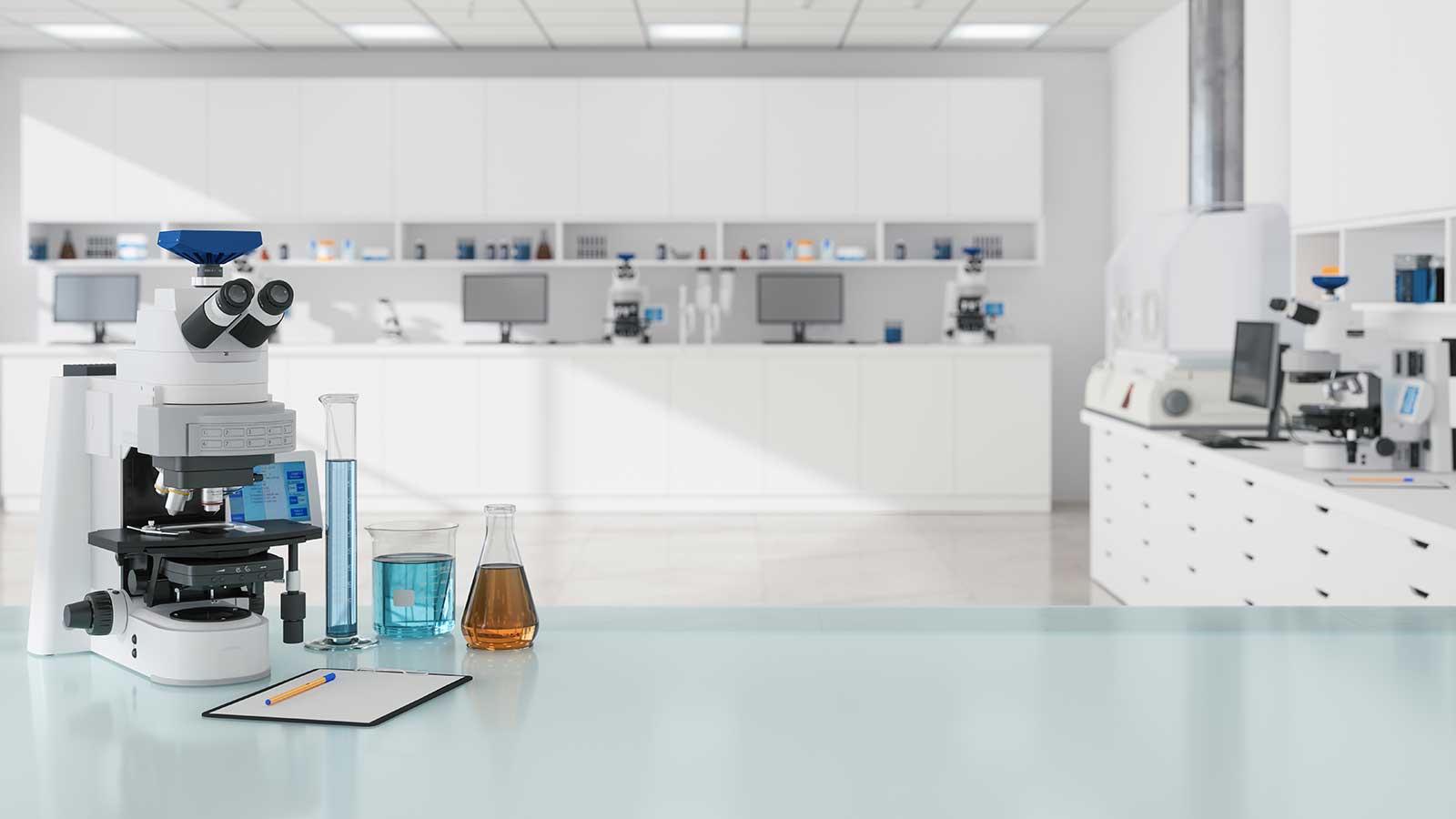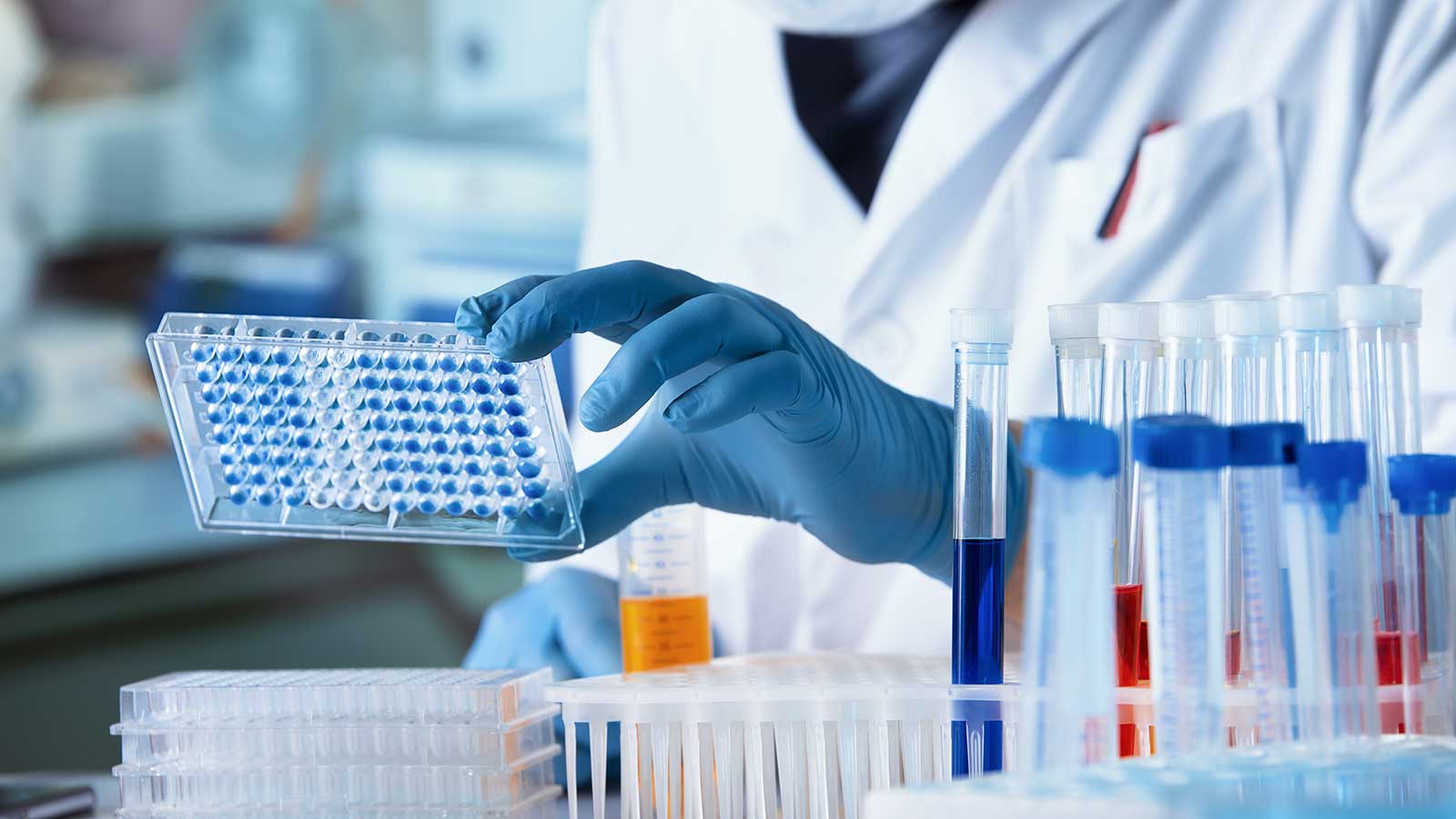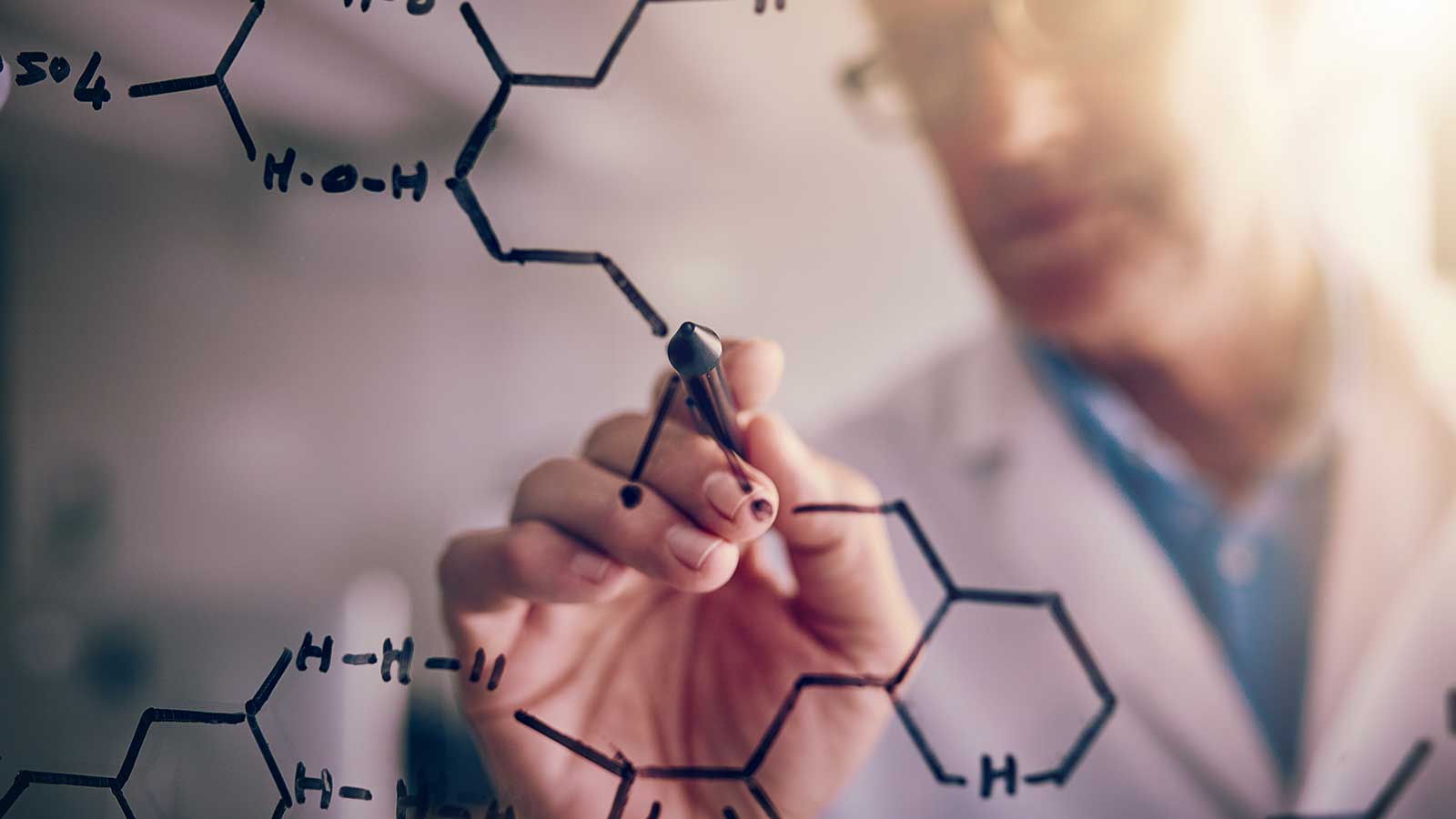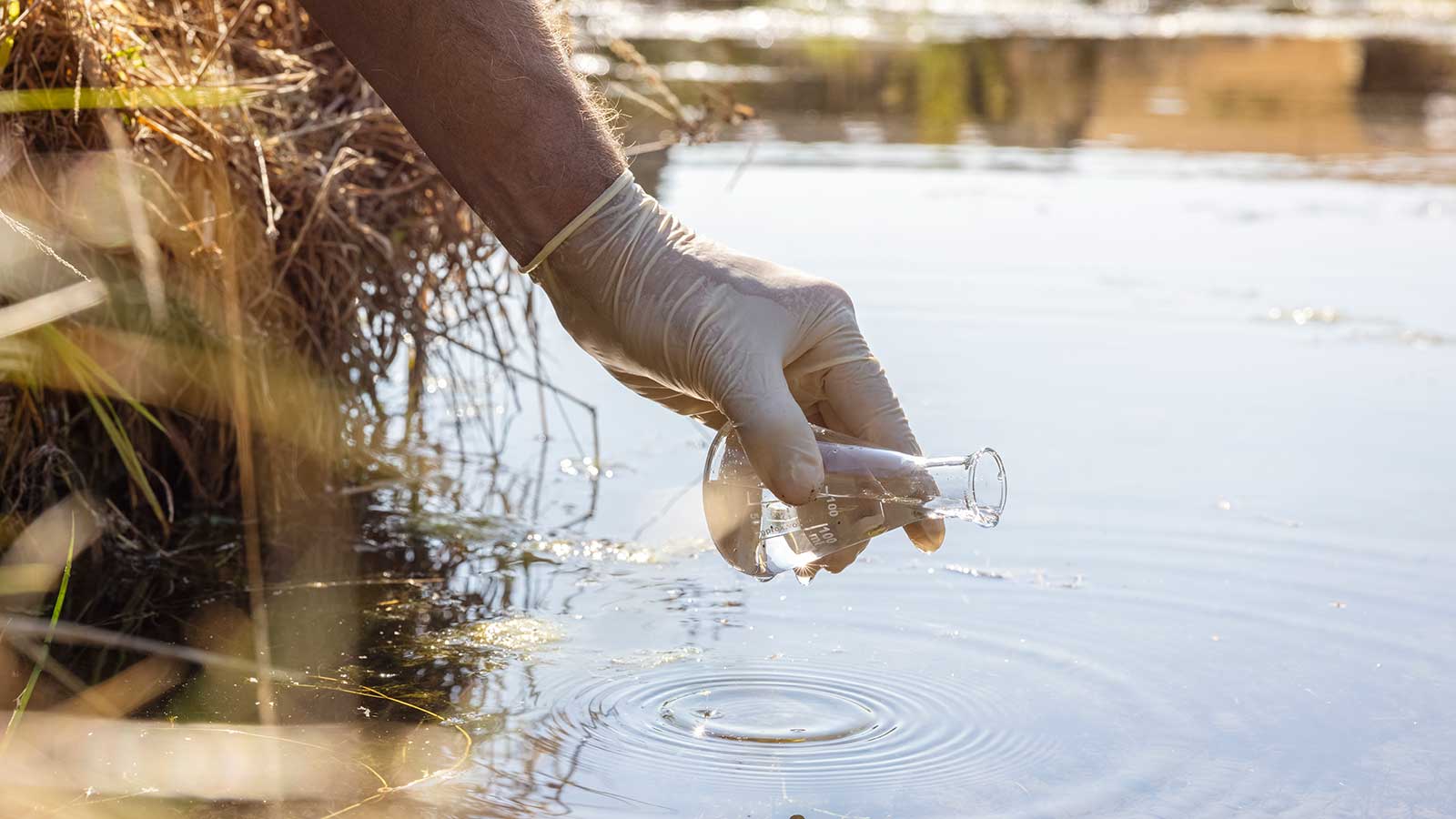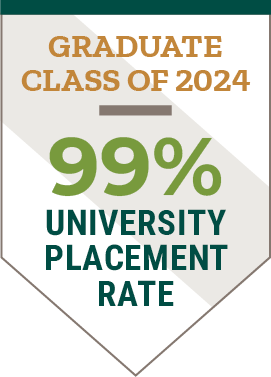
Known for Research
Chemistry is at the core of breakthroughs in disciplines as diverse as medicine, technology, nanomaterials and environmental science. PhD students in Clarkson University's chemistry program have the opportunity to participate in research and work alongside world-renowned faculty committed to sharing their knowledge.
Our faculty advisors educate you with the knowledge and skills you need to solve complex problems that impact society, ranging from smart materials to sensors, biotechnology and electronics. Graduate research is supported by federal agencies like the National Science Foundation (NSF), National Institutes of Health (NIH) and Department of Defense (DoD), as well as New York State and private industry.
Our small size encourages faculty to provide personalized training and exceptional mentoring focused on student success.
Why Earn a PhD in Chemistry From Clarkson?
We're driven by research at Clarkson. Our traditional strength is in areas such as colloids, surfaces, electrochemistry and analytical chemistry — topics underpinning much of the work done by our faculty.
Graduate students regularly publish their work in top scientific journals and have the opportunity to present research at national and international conferences. Professional organizations and student chapters are available on campus, including the American Chemical Society (ACS) and the Electrochemical Society (ECS). Students have access to a variety of professional development opportunities focusing on areas like research mentoring, entrepreneurship and leadership.
In our small department, faculty share their knowledge with students while collaborating on joint projects. Graduate students conduct research on projects spanning traditional core areas in analytical, inorganic, organic, biochemistry and physical chemistry, as well as interdisciplinary fields like materials chemistry, bionanotechnology and environmental sustainability.
Get hands-on experience with state-of-the-art instrumentation, like nuclear magnetic resonance (NMR) spectroscopy, mass spectrometry, gas chromatography-mass spectrometry (GC-MS) and high-performance liquid chromatography (HPLC).
Other instruments available for teaching and research include electron microscopes, UV/visible, fluorescence and atomic absorption spectrometers, mass spectrometers, X-ray diffractometers, particle sizers and thermal and mechanical analyzers.
Outside the lab, seminars and lectures expose students to the groundbreaking research conducted here and around the world. Our Shipley Distinguished Lecture Series has brought nine Nobel laureates to campus.
Curriculum Overview
PhD candidates in chemistry select a concentration from the following:
- Analytical chemistry
- Biochemistry
- Colloids and surface chemistry
- Environmental chemistry
- Materials chemistry
- Organic and inorganic chemistry
- Physical (theoretical) chemistry
Sample courses include:
Spring
- Advanced Bioanalytical Chemistry
- Biochemistry
- Biochemistry & Biotechnology Lab
- Biomedical Analysis and Instrumentation
- Bioelectronics & Bio-nanotechnology
- CM Seminar
- Colloids and Surface Science
- Implantable and Wearable Bioelectronics
- Sustainable Nanotechnology
- Thesis, Dissertation and Special Projects
Fall
- Biomaterials
- Manufacturing Implications/Advanced Materials
- Medicinal Chemistry
- Nanostructured Materials
- CM Seminar
- Colloids and Interfaces
- Physical Organic Chemistry
- Polymer Science
- Special Topics/Colloids and Surfaces
- Thesis, Dissertation and Special Projects
For more information, view the course catalogue for current program requirements, course numbers and credit hours.
Course Catalogue

